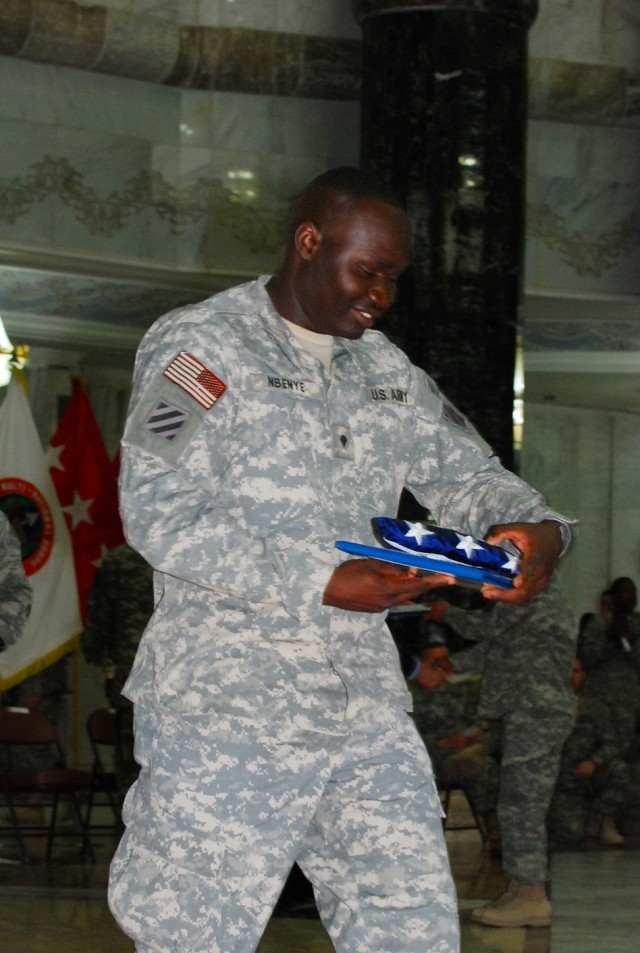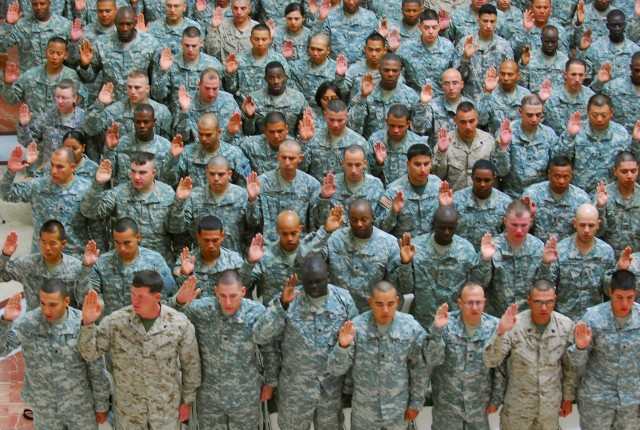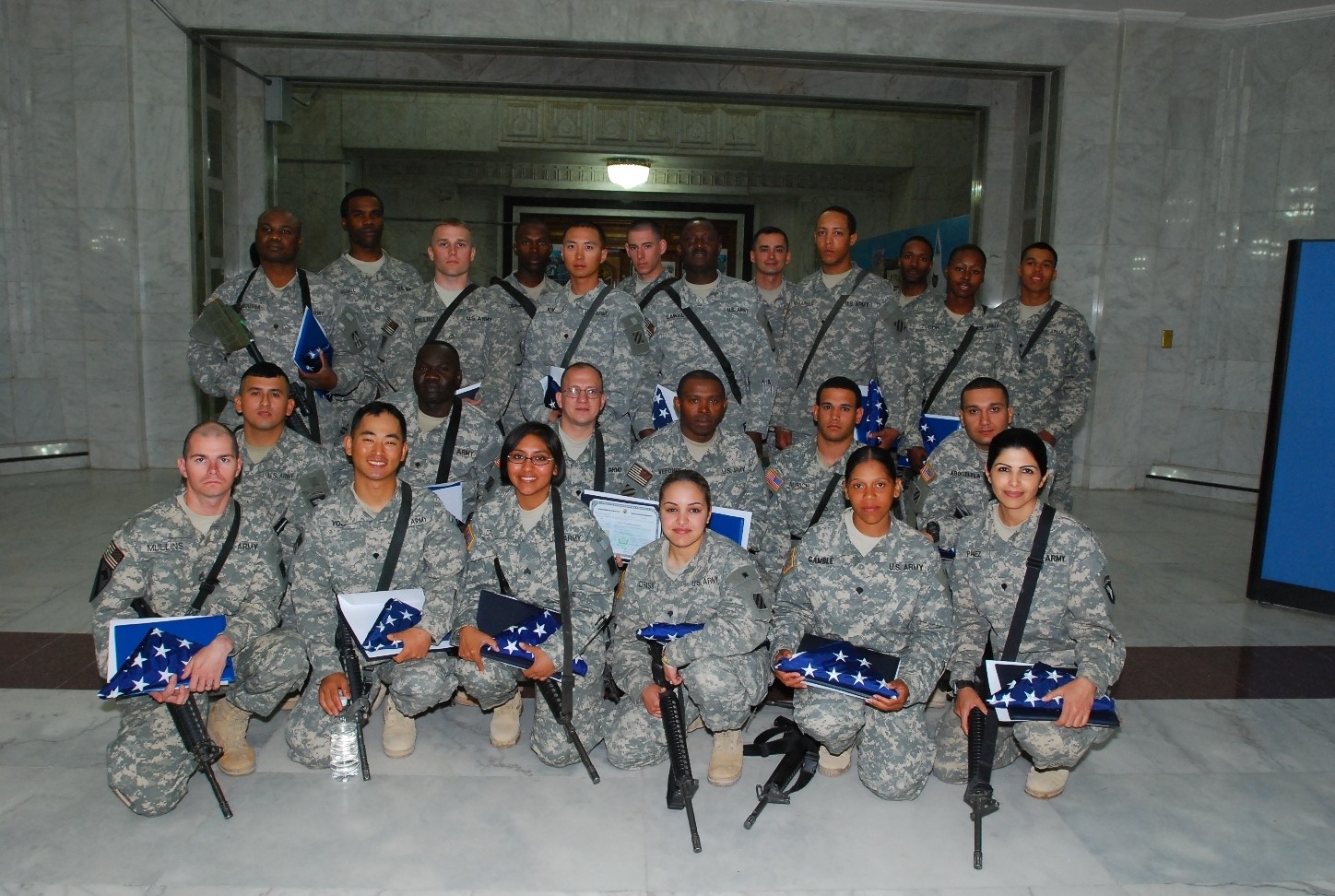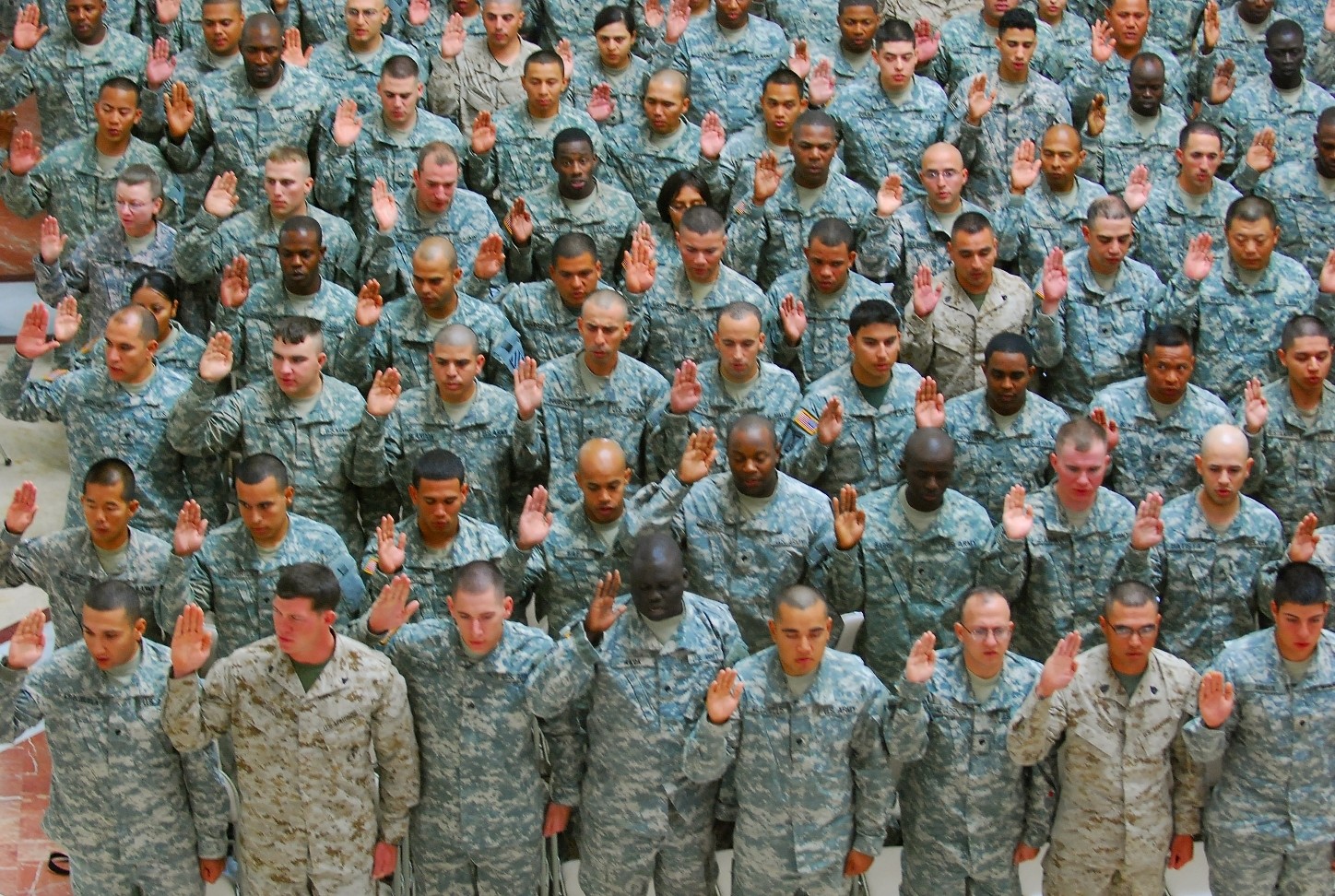CAMP VICTORY, Iraq - (Army News Service, April 14, 2008) -- Two hundred fifty-nine foreign-born U.S. troops currently serving throughout Iraq became American citizens at Al Faw Palace April 12, in the largest naturalization ceremony to date in Iraq.
Among the newest citizens were Soldiers who entered the United States as refugees from war-torn nations, including Spc. Simon Nbenye, an Arabic interpreter with Company D, 1st Battalion, 30th Infantry Regiment, 2nd Brigade Combat Team, 3rd Infantry Division.
Born in Sudan, a place where youths are sometimes snatched from their homes and forced to fight as child soldiers in a bloody civil war, Nbenye and his family faced religious and racial persecution from the Arab-Islamic government.
"The situation was terrible for my family," Nbenye said. "No jobs, no finances and too, too much violence."
Part of the Nbenye family, including Simon, moved to the Sudanese capital, while other family members stayed in the town of Maridi. Fearing his son would be forced to become a soldier, Nbenye's father urged his son to flee Sudan.
"They go to your home, knock on your door and ask your father where you are. If he refuses to get you, they kill him, get you and put you in the army. There is no guarantee you'll ever make it back home alive and they send you down to kill your own people," Nbenye said. "I had friends from school who were captured, sent to fight and I have never seen them again."
Travelling illegally through several countries in Africa including the Democratic Republic of Congo, Ethiopia and Egypt, Nbenye finally connected with the United Nations office in Cairo and gained refugee status. He entered the United States legally in 2001.
"When they granted me refugee status, it gave me so much hope," Nbenye said. "It meant for me a chance to start a new life in a safe place."
In 2006, upon hearing the Army needed Arabic speakers to help with the war on terrorism, Nbenye, fluent in Arabic, enlisted.
"America did something good for my life and my family by accepting me, so I decided I want to do something for the American people, to show them I am grateful," Nbenye said.
Until he came to the United States, he had never truly experienced freedom, Nbenye said. "My whole life, there is war in my country. No peace, never knowing for sure if you go out, you'll come back home. In America things are different. I feel safe."
Now that he is a citizen, Nbenye hopes to get a better job, visit his family in Sudan and help them become American citizens too.
More than 40,000 service members are not American citizens, according to U.S. Citizenship and Immigration Services. These foreign-born men and women have pledged commitment to the U.S. Constitution by serving in the military and many are availing themselves of a July 2002 executive order making members of the Armed Forces immediately eligible to apply for citizenship.
Nearly 5,000 service members have earned U.S. citizenship while serving abroad since 2004.
(Sgt. Jasmine Chopra serves with Multi National Division-Center Public Affairs Office)






Social Sharing